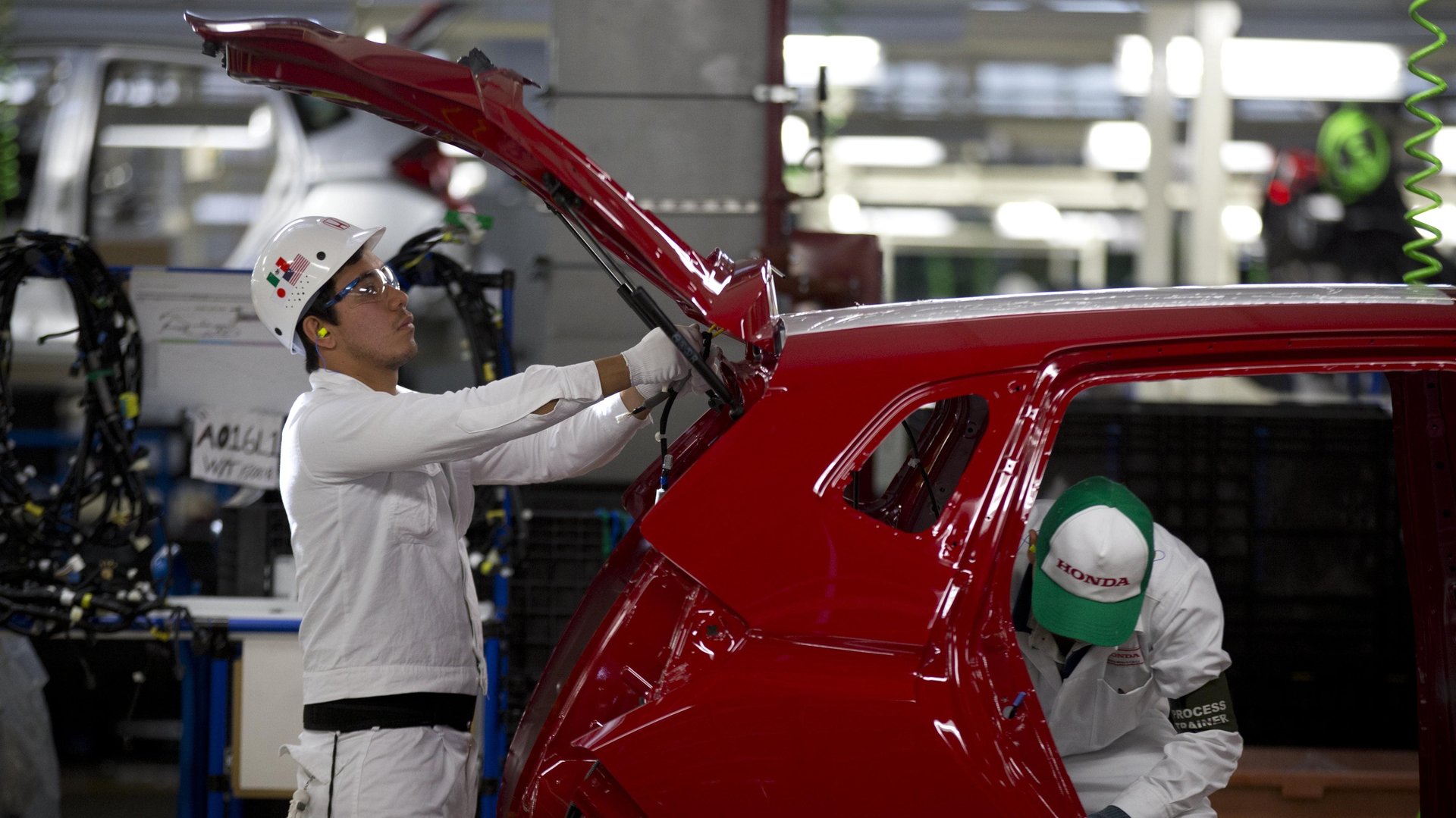The US has given global commerce two bizarre new terms: “blameless” trade deficits and “blameful” ones
In the world of US Commerce secretary Wilbur Ross, a trade balance is not a simple equation of exports minus imports. To him, it can be innocent, or morally bankrupt.


In the world of US Commerce secretary Wilbur Ross, a trade balance is not a simple equation of exports minus imports. To him, it can be innocent, or morally bankrupt.
The distinction offers a window into how the Trump administration sees trade—and how it might attempt to renegotiate the North American Trade Agreement (Nafta) and other international deals. Ross, who was speaking at a May 31 conference organized by the Washington, DC-based Bipartisan Policy Center, said reducing the US’s trade deficit will be one of the big goals in the Nafta talks, which could begin as early as mid-August.
Ross said he divides trade deficits into two categories (skip to 40:00 in the recording). “Blameless” trade deficits are those generated when the US buys products it needs from abroad because it doesn’t produce enough of them—for instance, Canadian oil and electricity. “We are not yet self-sufficient in energy, so naturally we’re going to have something of a deficit,” he said.
Then there are what he calls “blameful” deficits—“things that are subsidized, or are not with a level playing field, or come from some other inappropriate source of behavior rather than the natural course.”
He didn’t point any fingers or expand on the definition, but it’s not hard to read in his language that he sees the trade deficit the US is running with its other Nafta partner, Mexico, as “blameful.” Ross and his boss, president Donald Trump, have in the past complained that Mexico’s cheaper wages undercut American workers and have lured manufacturers south of the border.
Though the terminology is bizarre, it’s not uncommon for countries to complain that anti-competitive policies (such as subsidies) by other countries harm them by creating trade deficits and sucking away money and jobs. What’s debatable here is Ross’s claim that Mexico is in fact being anti-competitive. Its wages, after all, aren’t cheaper than the US’s because of subsidies; they’re cheaper because Mexico is a poorer country with a lower cost of living.
Interestingly, Ross’s solution to trade deficits (skip to 38:30 in the recording) wasn’t for the US to raise tariffs on imports, as his boss has suggested in recent months. Instead, Ross said, “blameful” nations could simply import more from the US instead of from other countries, to even out the trade balance. For example, “some of the agricultural products they buy come from Brazil,” he said. “They could just as well give us a better market share than we have now.”
Ross didn’t elaborate on how Mexico would go about giving the US a “better market share.” In principle there are mechanisms—such as import quotas—that one country can use to prioritize another country’s goods over those of competitors, but it’s not clear how those might work in this case. It’s also not exactly free trade. But it’s certainly in line with the Trump administration’s notion of “fair” trade as something far more reciprocal (paywall) than it has been in the past.